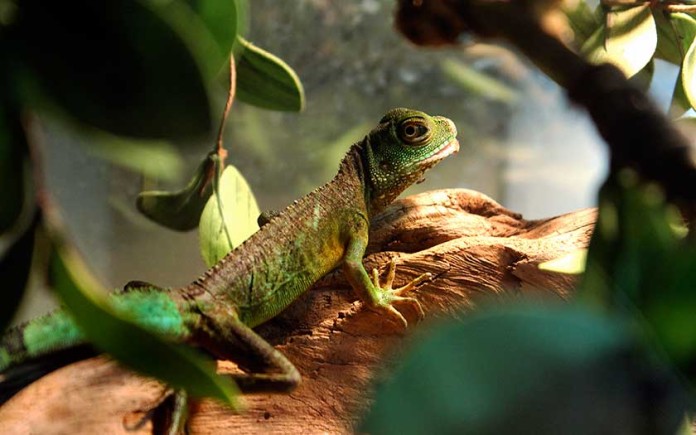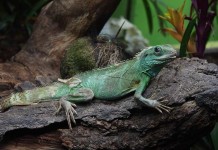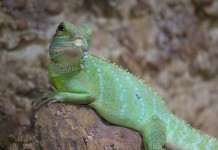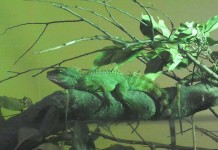Chinese water dragons are very particular about how you feed them. You can feed your pet daily or offer food every alternate day. However, your pet may suddenly refuse to eat anything. It can have an upset stomach or sit with its mouth wide open. This may be an indication that your pet suffers from internal parasite infection. These infections are mainly caused when your pet consumes contaminated food or water.
Although parasite infections are more common in wild dragons but they also occur in captive animals. Parasite infections get worse if your dragon is stressed or lives in an enclosure with poor living conditions. Your pet may show the following signs and symptoms if it gets infected by internal parasites.
Parasite infestation may cause your dragon to become lethargic and lose interest in food. Your pet may not eat anything for days which results in weight loss. You will notice loose stool all over the dragon enclosure which may smell awful.
If parasites are allowed to grow, they multiply rapidly and reach large numbers. Your pet’s immune system may not be able to handle this infestation. If parasite infection reaches advanced stages, your pet’s stool will actually contain worm like creatures.
Frequent diarrhea or loose stool makes water dragon defecate all over the enclosure. This is very unusual as water dragons normally defecate in water trays placed inside the enclosure. If your pet has dull eyes and dark skin color, you should immediately take your dragon to a specialized vet. Your pet will be examined closely and have its stool tested.
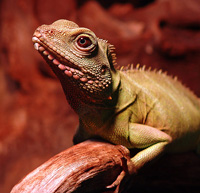 It is important that you visit a reputed reptile vet because in some cases internal parasite infections cannot be recognized easily. You don’t want your pet to suffer because of incorrect diagnosis or treatment therefore it is better you seek specialized care.
It is important that you visit a reputed reptile vet because in some cases internal parasite infections cannot be recognized easily. You don’t want your pet to suffer because of incorrect diagnosis or treatment therefore it is better you seek specialized care.
There is a chance that your water dragon is infected by a number of different parasites at the same time. This may require treatment with specialized antibiotics. Medication especially antibiotics are prescribed only after positive stool test and physical examination of the dragon.
You should keep a close eye on your dragon when it is undergoing treatment for parasite infections. The enclosure also needs to be cleaned thoroughly to remove all possible sources of contamination. This is essential to prevent your dragon from repeated parasite infections.

